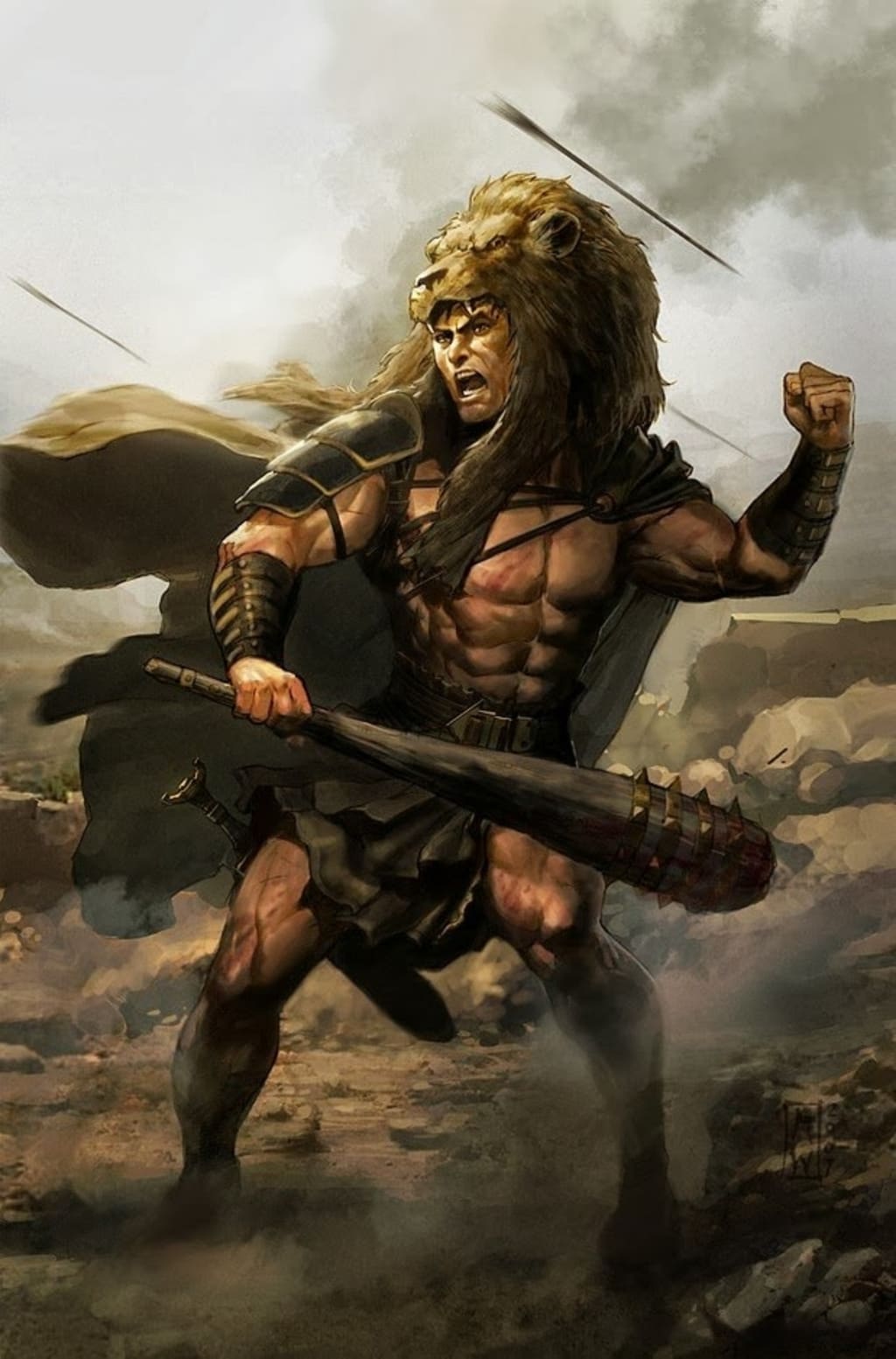The Mythical Marvel of Hercules: A Tale of Power and Legends
Hercules: A Mythical Marvel

Introduction:
Throughout history, various cultures have woven fascinating mythologies, with stories of gods and goddesses holding a significant place. One such culture that bears resemblance to the multitude of deities and powerful entities like those in Hinduism is ancient Greece. The land of Greece was home to an array of divine beings, and among them, the mighty Hercules stands tall as a symbol of strength and valor. Though some historians dismiss Hercules as a mere legend, the Greek narratives and beliefs surrounding this extraordinary figure continue to captivate hearts and minds to this day.
The Enigmatic Legend of Hercules
In the annals of Greek mythology, the name Hercules resounds with awe and admiration. Son of Zeus, the most revered god in the Greek pantheon, Hercules exhibited exceptional prowess from his earliest days. Born to Alcmena, a mortal woman, Hercules was both a demigod and a mortal, which bestowed upon him extraordinary abilities. Legends recount an astonishing tale of his infantile valor when he fearlessly defeated two dangerous snakes sent by the jealous goddess Hera to end his life. This courageous act foreshadowed the extraordinary life he would lead and the numerous challenges he would face.
The stories of Hercules' remarkable feats and divine lineage spread far and wide, making him a figure of fascination and reverence throughout Greece. People marveled at his incredible strength and sought his blessings for protection and success.
The Twelve Herculean Labors
Hercules' journey to greatness is best depicted through the Twelve Labors he undertook. These tasks, bestowed upon him as punishment for a terrible crime he committed in a fit of madness, were seemingly insurmountable. Each labor demanded Hercules to confront and defeat unimaginable foes and perform miraculous feats. The Labors included:
The Nemean Lion: Hercules strangled the lion with his bare hands, as no weapon could penetrate its impenetrable hide.
The Lernaean Hydra: A terrifying serpent with nine heads, the Hydra grew two new heads for every one cut off. Hercules defeated it with the help of his nephew, Iolaus.
The Ceryneian Hind: A sacred deer that was swift and elusive, Hercules managed to capture it alive.
The Erymanthian Boar: Hercules captured a monstrous boar that had been terrorizing the region.
The Augean Stables: In a single day, Hercules cleaned the vast, filth-ridden stables of King Augeas, using his extraordinary strength and ingenuity.
The Stymphalian Birds: Hercules used rattles provided by the goddess Athena to drive away the deadly birds that were plaguing an area.
The Cretan Bull: Hercules captured the raging bull sent by Poseidon to wreak havoc in Crete.
The Mares of Diomedes: These flesh-eating horses posed a severe threat, but Hercules tamed them and brought them under control.
The Belt of Hippolyta: Hercules was sent to obtain the girdle of the Amazonian queen, Hippolyta, which he accomplished.
The Cattle of Geryon: Hercules stole the cattle belonging to the giant Geryon, a three-bodied monster.
The Apples of the Hesperides: In this labor, Hercules sought the golden apples of immortality, guarded by the Hesperides and the serpent Ladon.
Cerberus: The final and most perilous task required Hercules to capture the three-headed dog guarding the gates of the Underworld, Hades.
His trials took him on a journey through distant lands, bringing him face-to-face with mythical beasts and otherworldly challenges. Each labor was a testament to his unwavering courage, resourcefulness, and determination.
Heading 3: The Divine Weapons of Hercules
According to Greek legends, Hercules wielded a set of extraordinary weapons, further enhancing his legendary status. His sword, known as "Kesarian," and shield, called "Aegis," were said to possess magical properties, rendering them impossible for ordinary mortals to lift, let alone wield. These divine artifacts protected Hercules against any weapon, creature, or challenge that dared to stand in his way.
The sword was said to be a gift from Hermes, the messenger god, and possessed the power to cut through any material with ease. The shield, gifted by Athena, granted Hercules impenetrable defense, making him virtually invincible in battle. With these divine weapons, Hercules became an unstoppable force, able to face even the most formidable adversaries.
Controversy Surrounding the Myth
While the exploits of Hercules are cherished in Greek mythology, skepticism shrouds his existence among modern historians. Many scholars dismiss him as a fictional character, a product of ancient storytelling and religious beliefs. The seemingly supernatural aspects of his story challenge the limits of human imagination and rationale, prompting some to conclude that Hercules could never have existed as described in the myths.
Some historians argue that the tale of Hercules might have roots in historical figures or events, exaggerated and embellished over time to elevate him to divine status. Others propose that he might represent a collective amalgamation of heroes from different regions and cultures.
Despite the debates, the story of Hercules remains an integral part of Greek culture and continues to be celebrated through art, literature, and popular culture.
Conclusion:
Hercules, the revered demigod of ancient Greece, remains an iconic symbol of strength, bravery, and the pursuit of greatness. His legendary Twelve Labors and divine weapons have inspired countless generations, shaping the foundation of heroic tales for centuries. While historians debate the historicity of Hercules, the impact of his mythos on world culture is undeniable. The story of Hercules transcends time, continuing to enchant and inspire people with its portrayal of resilience and valor against all odds. As long as humanity continues to share and cherish stories of mythical beings like Hercules, his legend will endure as an eternal beacon of hope and heroism. In a world where imagination knows no bounds, the tale of Hercules will continue to resonate, celebrating the indomitable spirit of the human endeavor and the allure of mythic heroes.






Comments
Young Writer is not accepting comments at the moment
Want to show your support? Send them a one-off tip.